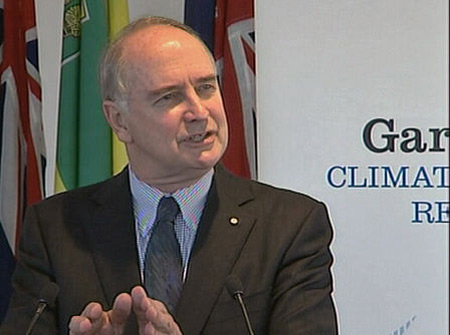Australia’s Climate Commission (established by government, but “not subject to government direction“) today released an overview of the current climate state of play — The Critical Decade: Climate science, risks and responses (key points, full report). It’s important and timely — especially in the Australian political context, but it also has lessons for most of the world’s policymakers. Here are the key findings:
- There is no doubt that the climate is changing. The evidence is overwhelming and clear
- We are already seeing the social, economic and environmental impacts of a changing climate
- Human activities – the burning of fossil fuels and deforestation – are triggering the changes we are witnessing in the global climate
- This is the critical decade. Decisions we make from now to 2020 will determine the severity of climate change our children and grandchildren experience
The last point is the most important. It underlines much of what we’re learning about the climate system’s response to the pulse of greenhouse gases we’re forcing it to swallow. Here’s one of the bullet points under point four:
This decade is critical. Unless effective action is taken, the global climate may be so irreversibly altered we will struggle to maintain our present way of life. The choices we make this decade will shape the long-term climate future for our children and grandchildren.
This is what Jim Hansen was on about in his tour of New Zealand — the duty we owe to our children and our children’s children. Please read his latest draft paper: The case for young people and nature: a path to a healthy, natural prosperous future. And look in particular at the emissions paths therein. We have a limited window in which to prevent unimaginable damage to the planet.
To do that, we need policy that starts where the laws of physics finish, not pretends that they can be bent to economic theory. We need more bodies like the Climate Commission, willing to speak truth to power, and we need politicians who will listen.
[See The Conversation for comments from senior Aussie academics.]
[Booker T and the MGs]
Like this:
Like Loading...

 I appreciated the candidness with which economist
I appreciated the candidness with which economist  Ross Garnaut, the Australian government’s climate change adviser, today published the science update [
Ross Garnaut, the Australian government’s climate change adviser, today published the science update [